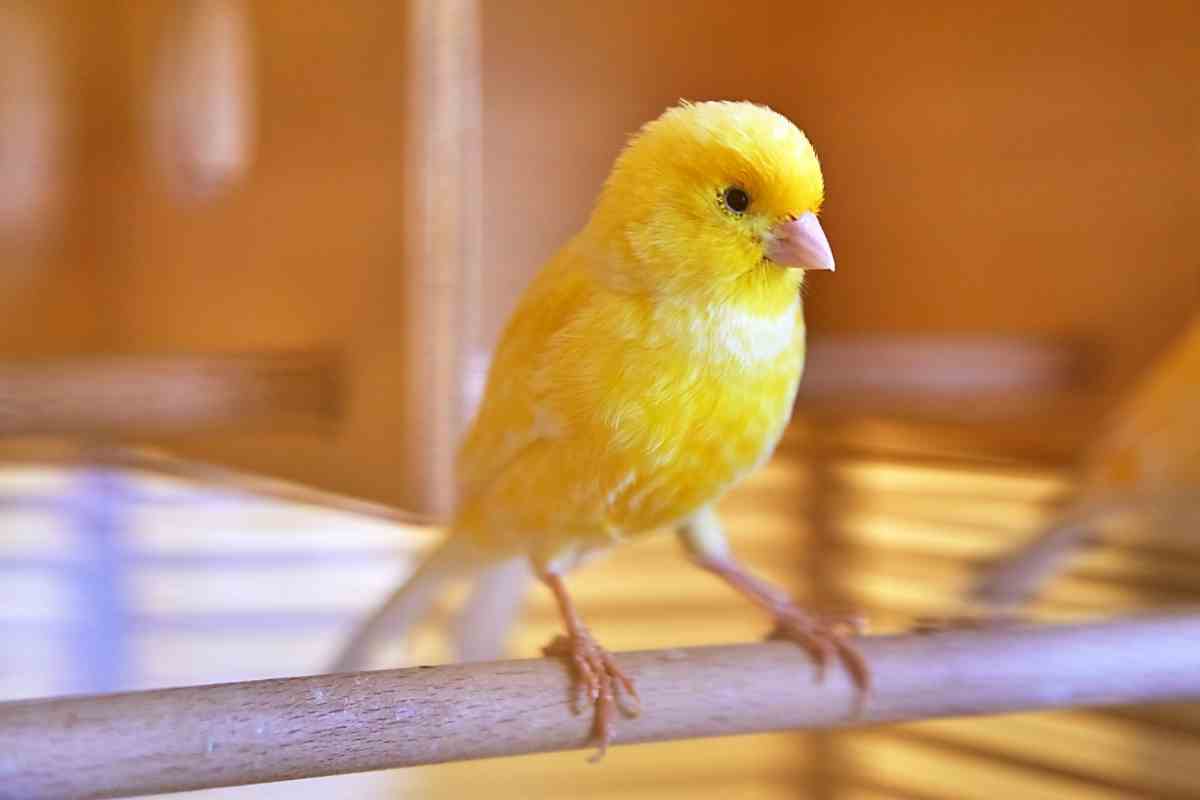Canaries are popular domestic birds and many people choose to keep them in an indoor cage.
However, if you have a lot of birds or want to keep your pets outdoors, there are some things you’ll want to consider.
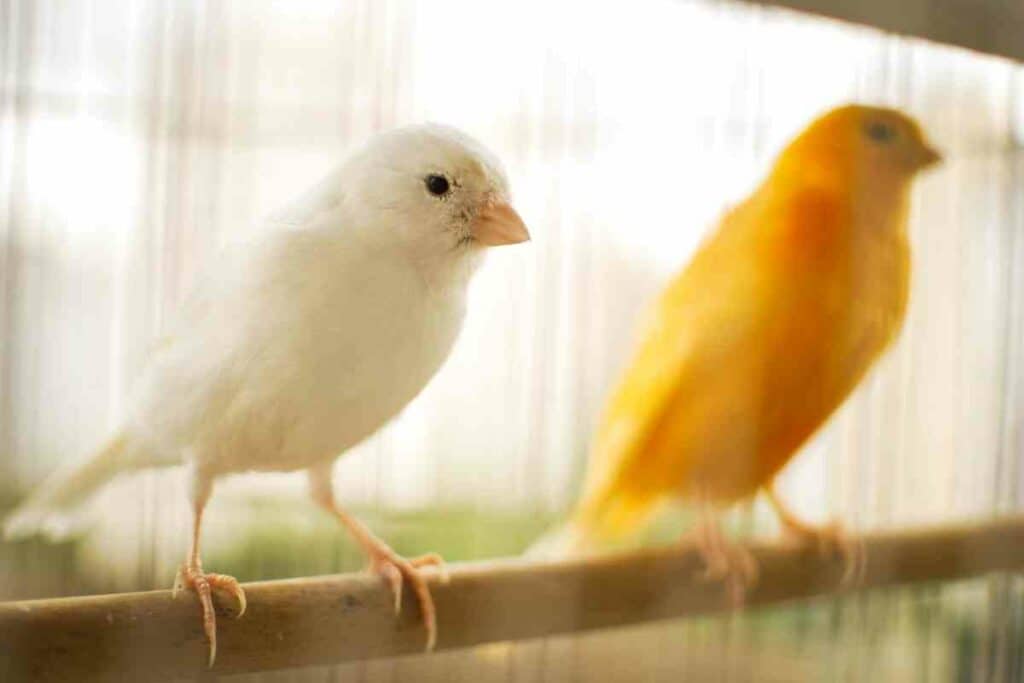
One of the first things that people ask is whether canaries can live safely outdoors.
The good news is that canaries will do very well in an outdoor aviary provided that they have the right conditions, enough room to fly about, and are secure and out of the way of any potential hazards.
In This Guide – We’ll be telling you everything you need to know to keep your canaries outside.
Will Canaries Get Too Cold When Kept Outdoors?
Primarily, you should make sure that the temperature conditions for your canaries are just right.
The last thing you want is for your birds to be uncomfortable or even worse, become ill.
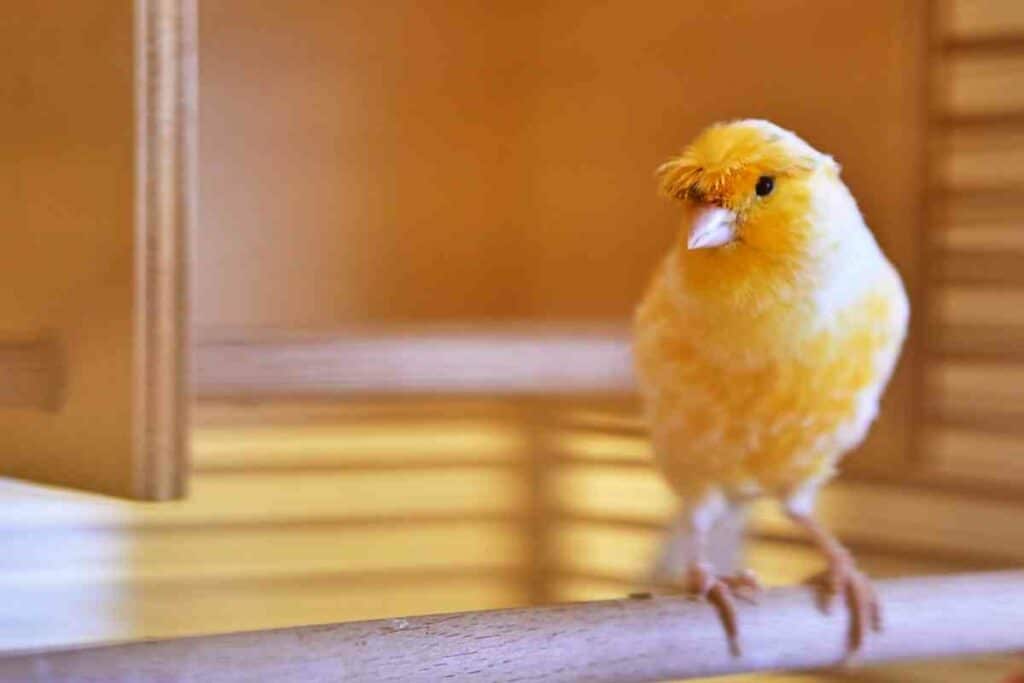
When they’re in the wild, canaries may survive in temperatures as low as 17ºf but this isn’t something we would recommend for domestic birds.
Generally Speaking – The ideal temperature for these types of birds is somewhere between 60ºf and 70ºf. This can be achieved in an outdoor aviary through the use of an aviary heater.
This is especially important during the winter months so be sure to closely monitor the temperature.
Mind The Draft!
As well as making sure that your canaries aren’t exposed to super cold temperatures, it’s also a good idea to make sure that the aviary is not in the way of any constant drafts.
This can be very dangerous to your birds and is something that they will not survive for very long.
If there is a very slight draft, then you may be able to counteract this by using blankets or towels to cover the area that the draft is coming from.
However, this shouldn’t be a primary solution and placing your aviary in a location where there are no drafts is the best idea.
It’s easy to determine whether there is a draft in your aviary and you can do this by using the lighter test.
Simply light a lighter, or a match if you prefer, and hold it in all four corners of the aviary, one at a time. If the flame flickers at all then this suggests a draft.
Protecting Your Canaries From The Cold
During winter, depending on where you live, things can get very cold.
Even the most well-meaning bird owners can get it wrong and the result is that their birds become sick or even die from exposure to cold.
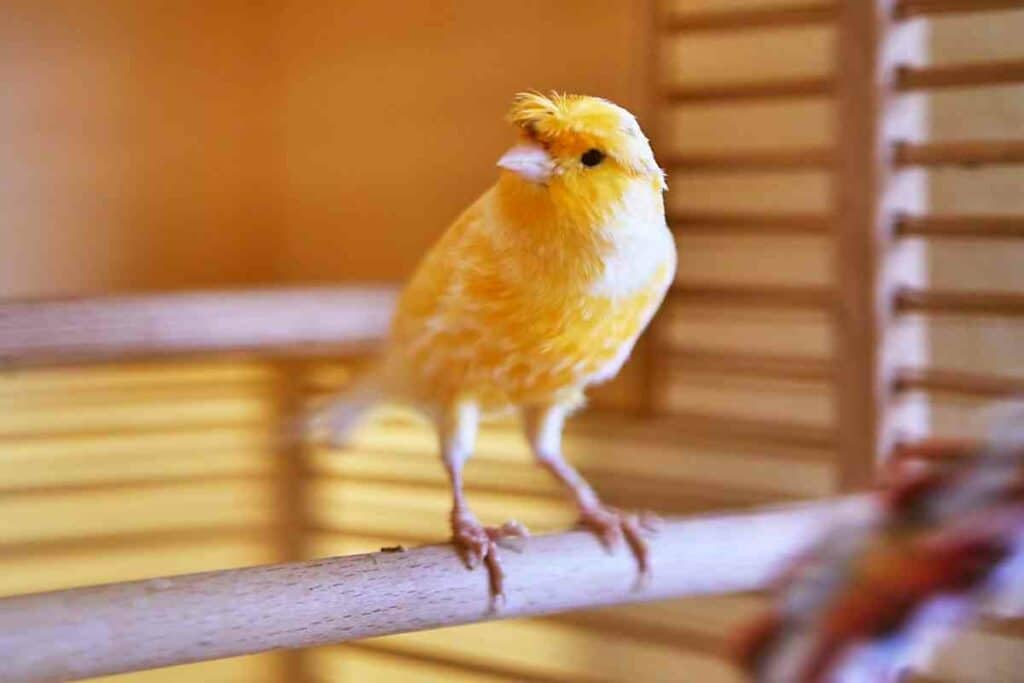
While using an aviary heater is a great option, there are some other things you can do to protect them from the cold:
- For starters, even when you are using a heater, you will need to make sure that the airflow within the aviary is suitable. Additionally, you’ll want to make sure that your canary enclosure has low humidity levels.
- Sometimes, especially in very cold weather, it can be helpful to build a little canary tent or hide within the aviary itself. This will give your birds somewhere to nestle down and stay warm. There are also aviary covers available which are great for night times when the temperature may drop even lower.
One thing that many owners unintentionally don’t think about when setting up an aviary for winter is the water that they provide for their birds.
This water can get very cold, very quickly so it’s important to monitor the temperature and change the water as needed.
Finally: Ensuring that your canaries have a healthy and balanced diet will give their immune systems a boost. In turn, this means that they will better be able to withstand cooler conditions and will get through winter more easily.
Canaries And Sunlight
Like most animals, canaries need a degree of sunlight to get vitamin D.
However, you should be careful not to allow your birds too much direct sunlight exposure as this can cause them to become sick.
The reason for this is that these birds will quite easily overheat so it’s essential to choose a spot for your aviary that does not receive full and direct sunlight all day long.
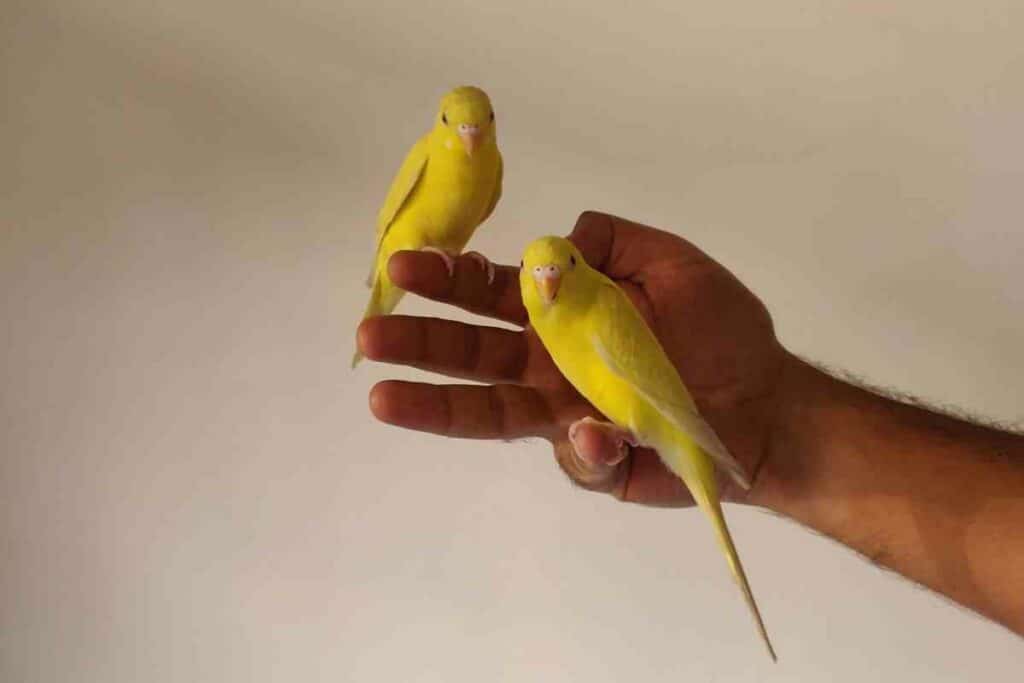
You will be able to tell if your canaries are suffering from overheating as they will sit with their mouths open or may hold their wings away from their bodies.
You may also notice that canaries start to molt sooner when they are overheated.
It’s important to get the balance right in the aviary. Place shades if the location is in full sun for most of the day.
On the other hand, you don’t want to completely deny your birds of natural sunlight as this is good for their health in terms of hormone production and bone density, among other things.
Works Fine – If the aviary doesn’t receive any direct sunlight, try installing a full spectrum light.
Protecting The Canaries From Wildlife and Pets
One of the biggest concerns for canary owners who keep their birds outdoors is the risk of their birds being attacked by other animals.
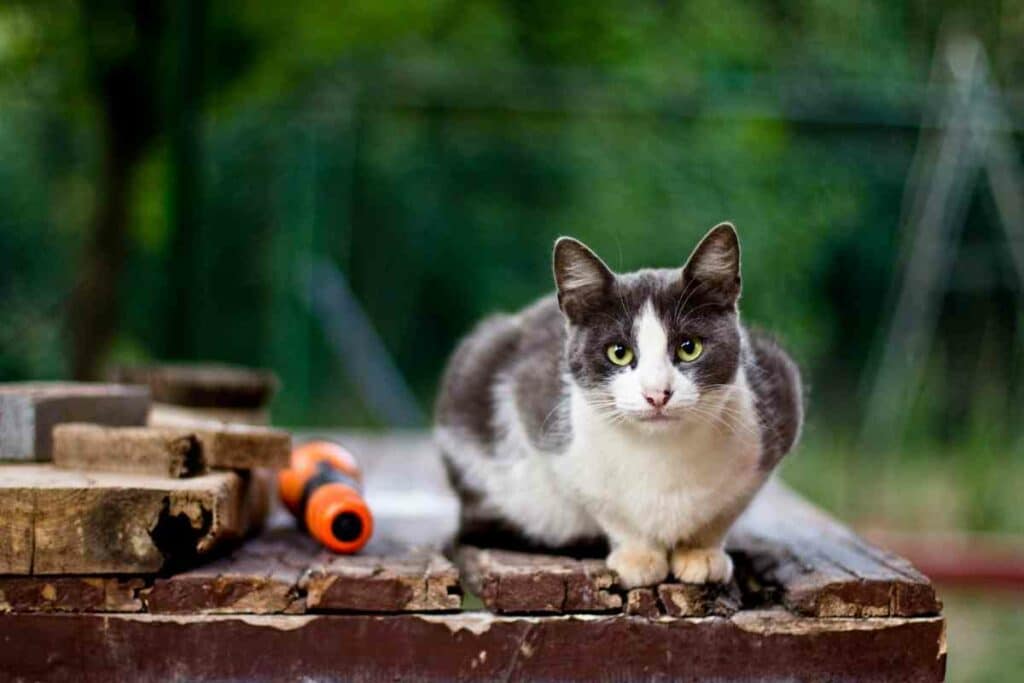
Whether this is local wildlife or even your other pets such as dogs and cats, it’s vital to make sure that your aviary is secure and protected.
Make sure that all sides and the roof of the enclosure are secure and cannot be easily tampered with by other animals.
It’s a good idea to research local wildlife so you know what you’re up against.
Furthermore: Reinforcing the base of the aviary will prevent rodents and other creatures from being able to dig their way in.
Conclusion
If you’ve got canaries and don’t have space for them indoors then building an outdoor aviary is a good option.
These birds will do well outdoors and it’s perfectly safe to keep them here provided that they have the right conditions.
